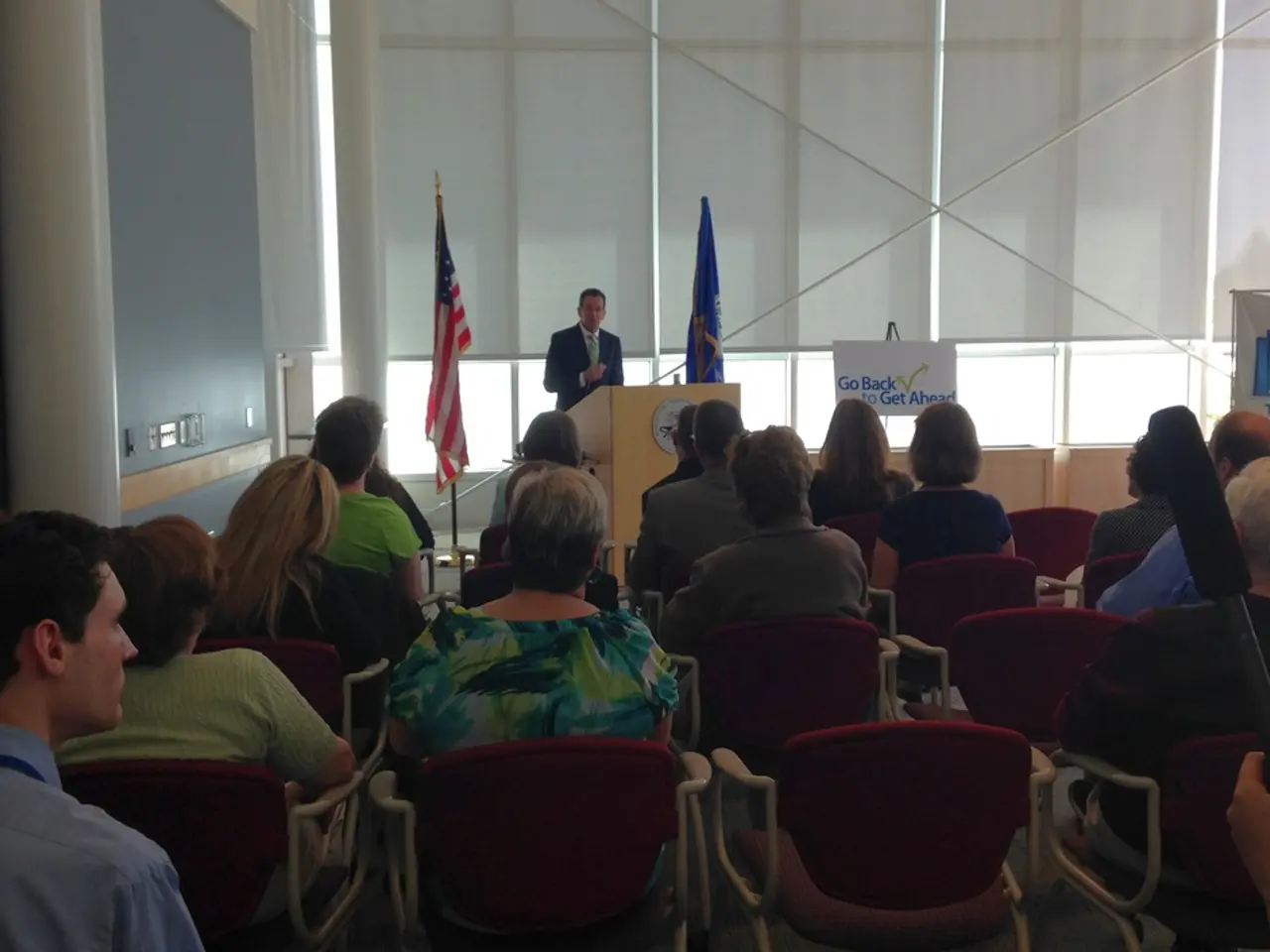Proposal requested for a safety measure on workers against risks stemming from electronic communication network utilization, as per the Commission's mandate.
In the lead-up to the European elections scheduled for June, Germany's Interior Minister, Nancy Faeser, has announced a proposal to enhance the protection of politicians. This comes amidst growing concerns about the safety of political figures, particularly during election season.
The Social Democratic Party (SPD) member, Faeser, is considering harsher penalties for attackers on politicians, a move that would necessitate changes in the law. The proposal follows a series of attacks on politicians during election seasons, with some perpetrators being identified as far-right extremists.
One such attack occurred in Dresden, where Matthias Eckardt, a political figure, was assaulted while putting up election posters. The motives of these attackers are often rooted in their opposition to the targeted parties, although the exact motivations can sometimes remain unclear.
Several members of the "Greens" party have also been victims of attacks while campaigning. The far-right extremists, who believe in unequal rights for different groups, pose a significant threat to political figures in Germany. Some of these extremists resort to violence, targeting foreigners or people with disabilities, among others.
However, it's not just far-right extremists who pose a threat. The man who attacked Franziska Giffey, another political figure, is believed to have been mentally ill. This underscores the complex and multifaceted nature of the threats faced by politicians during election seasons.
Election season in Germany is a time of intense political activity, involving parties campaigning, numerous events, and the display of election posters. The European elections, which take place every five years, mark a crucial period for the country's political landscape. The first European election took place in 1979, and since then, it has been a significant event in the democratic process.
As the country gears up for the European elections, the focus remains on ensuring the safety and security of all political figures. The proposal by Interior Minister Faeser is a step towards this goal, aiming to deter potential attackers and protect those who dedicate their lives to serving the public.
Read also:
- United States tariffs pose a threat to India, necessitating the recruitment of adept negotiators or strategists, similar to those who had influenced Trump's decisions.
- Weekly happenings in the German Federal Parliament (Bundestag)
- Southwest region's most popular posts, accompanied by an inquiry:
- Discussion between Putin and Trump in Alaska could potentially overshadow Ukraine's concerns







